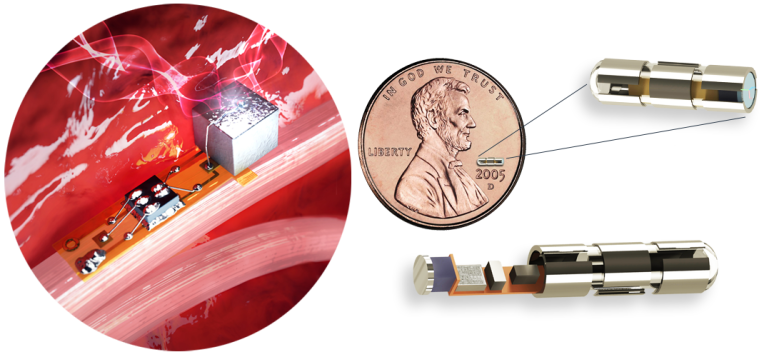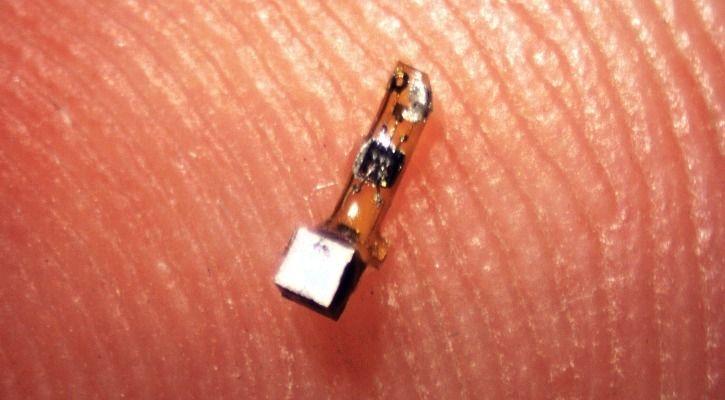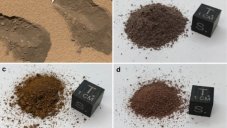A Company Just Made In-Body Health Sensors Smaller Than Grain Of Rice
Indira Datta - Feb 01, 2018

Iota Biosciences just developed a grain-sized device that can be implanted in the human body to measure and analyze their health status.
Currently on the market today there are many handheld devices can check and measure human health, but sometimes there are tests related to internal health that require blood collection. A technology company with the aim of reducing injecting and taking blood during a health checkup, they invented a biosensor that helps people determine their own condition without blood needs to be tested.
The company, which wants to improve these medical tests, is called Iota Biosciences. They claim that blood tests are not the only ones to check patients' health. The company invented a very small bio-sensor that is almost 1 millimeter wide. This grain-sized device will be implanted in the human body to measure and analyze their health status.

Super Small In-Body Health Sensors
Instead, you have to go to the hospital and do many complicated tests. If the patient has this sensor implanted inside the body, the doctor can connect and collect all the information and data needed to diagnose the patient's disease. The connections between the sensor and the doctor's device are wireless, so they don't take long and complicated to install anything.
Through this device of the University of California, Berkeley, a $15 million Series A investment has brought this team closer to building their own company. Michel Maharbiz and Jose Carmena jointly improved and upgraded their microelectronics at the university. These devices are used for medical treatment and research purposes, and are capable of monitoring and stimulating muscle and nerve tissue. One disadvantage at the time was that these microelectrodes were not very small in size. Because in fact, it is often connected to larger devices and when connected to the body, they can only connect to a single body in a couple weeks at a time.
Their first model was a sensor that could wirelessly connect and can power itself, but it was impossible to do. Then they switched to tiny wavelength because it has a small wavelength so they can provide the antenna for it so that it can accomplish the tasks they deliver. Signals can be captured in any part of the body, inasmuch RF cannot do that.

Iota sensors are now very small in size and are capable of attaching to muscle fibers or a nerve. It has a small electric current inside it when it is active and affected by the electrical activity in the tissue it is attached to, thus giving data so that doctors can diagnose and review the condition of the patient. One advantage of this device compared to conventional test methods is that it is not invasive to the patient when collecting data.
However, in order to be put into general use, this device requires FDA approval. But in case it is approved, imagine everyone around us has a piece of hardware inside them and every time we go to the doctor, the doctor only needs to connect, get the data and give conclude. It will save a lot of time, effort and cost for many people.
Featured Stories

Features - Jul 01, 2025
What Are The Fastest Passenger Vehicles Ever Created?

Features - Jun 25, 2025
Japan Hydrogen Breakthrough: Scientists Crack the Clean Energy Code with...

ICT News - Jun 25, 2025
AI Intimidation Tactics: CEOs Turn Flawed Technology Into Employee Fear Machine

Review - Jun 25, 2025
Windows 11 Problems: Is Microsoft's "Best" OS Actually Getting Worse?

Features - Jun 22, 2025
Telegram Founder Pavel Durov Plans to Split $14 Billion Fortune Among 106 Children

ICT News - Jun 22, 2025
Neuralink Telepathy Chip Enables Quadriplegic Rob Greiner to Control Games with...

Features - Jun 21, 2025
This Over $100 Bottle Has Nothing But Fresh Air Inside

Features - Jun 18, 2025
Best Mobile VPN Apps for Gaming 2025: Complete Guide

Features - Jun 18, 2025
A Math Formula Tells Us How Long Everything Will Live

Features - Jun 16, 2025
Comments
Sort by Newest | Popular